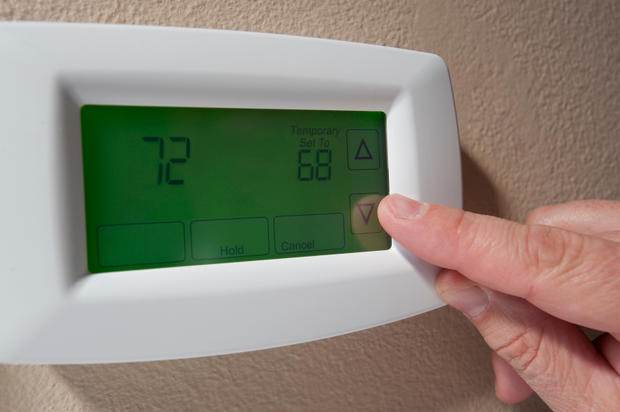The Five Must-Have Energy-Efficient Appliances No Green Home Should Be Without
When old appliances need replacing, it is simple, good sense to upgrade them to energy-efficient models. Trading up to energy-efficient appliances, such as those certified as Energy Star, produces long-term savings in electricity use, as well as significantly diminished carbon emissions. Many homeowners also opt to replace their newer appliances with more efficient models in order to support greening the planet while reducing their energy bills. Despite the initial outlay, greening your in-home guzzlers can help you save significantly in a short amount of time, particularly if you take advantage of the rebates and tax incentives that are available. If you're not able to upgrade every appliance in your home, these five can still supply a maximum, energy-saving boost.
The average refrigerator-freezer eats up more energy than any other appliance in the home, especially if it is 10 years old or older. Upgrading to an energy-efficient fridge can represent a savings of over $1,000 over the course of its lifetime, as well as a significant reduction in greenhouse gas emissions. When buying a new model, look for the yellow and black Energy Guide label, which is now required on many new appliances, such as refrigerators. The Guide will give you the estimated annual energy consumption so you can cost compare when shopping. Make sure to buy the right size model for your home. Running one large fridge costs less than maintaining two small ones. The less accessories your refrigerator has, the more efficiently it will run. Ice makers, water dispensers and auto-defrost may be fun gimmicks, but they all reduce energy efficiency, so decide what you absolutely need and what is not worth the cost.
Energy-efficient clothes washers can help to slash energy and water bills by up to 35 percent, since they use less of each to wash the average load of clothes. Top-load and front-load models are now available with greater tub capacity than in years' past, so you can wash more clothing at a time and do fewer loads, which will reduce energy usage. Many clothes-washers use high-pressure spraying mechanisms for rinsing instead of soaking, which reduces water usage. You can also cut your power usage by only washing full loads and keeping the switch firmly fixed on the cold water cycle. Less is more when it comes to laundry detergent. Over-sudsing can force your machine into using more energy during the rinse cycle and won't get your clothes any cleaner.
Energy-efficient air conditioners come in a wide range of BTU capacities, so you can choose a model capable of cooling even the largest room without burning too big a hole in your wallet when the temperature soars. Look for models that have an energy efficiency ratio of 10.0 or greater and a sleep mode that can slowly raise the temperature during the night. Unless you have pets at home to keep cool, turn your AC off during the day or opt for a model that comes equipped with a timer so your house can get ready for your return on its own.
A variety of different types of energy-efficient water heaters are now on the market, including solar, electric storage tank, gas storage tank, heat pump and gas tankless options. Most types of water heaters operate at their highest efficiency levels if they are well insulated on the outside, and are set to the lowest temperature possible, preferably within the 120- to 140-degree range. High-efficiency water heaters can require up to 50 percent less energy than standard models do, representing a significant cost savings. Water heaters are sold with their energy factor clearly affixed next to the Energy Guide label. Those with the highest number have the most efficiency.
New, energy-efficient dishwashers can save as much as 1,300 gallons of water over models built a decade ago, over the span of their lifetime. Utilizing intelligent, soil-censoring systems, highly efficient jet sprays and improved water filtration techniques, this new generation of dishwashers reduces energy consumption and utilizes around 10 less gallons of water per cycle than older models. You can save even more energy by omitting pre-rinsing and running your dishwasher only at full capacity. You can also opt for dishwashers that offer light wash and air dry options.




